Nepal earthquake: Frustration mounts over relief effort
- Published
North of Kathmandu, in a ruined village, a BBC team finds no evidence of aid arriving
Frustration is growing in parts of rural Nepal over the pace of relief efforts, with some badly-affected villages yet to receive any assistance.
Survivors in some areas told the BBC that they were angry that neither food nor medicine has reached them.
The UN has appealed for $415m (£270m) to help provide emergency relief over the next three months.
Meanwhile, a teenage boy has been rescued alive after spending five days trapped under rubble in Kathmandu.
Crowds cheered as the boy was brought blinking into the daylight, a BBC reporter at the scene says.
Officials say Saturday's quake killed more than 5,500 people, and injured at least 11,000.
The UN says more than eight million people have been affected by Saturday's 7.8-magnitude quake and some 70,000 houses have been destroyed.
The government says it has been overwhelmed by the disaster.
Pleading for airlifts
In several villages north-east of the capital, Kathmandu, no buildings have been left untouched and bodies are still lying under the rubble, the BBC's Richard Galpin reports.
There has been no help from the government or aid agencies even though supplies could easily be brought in by road or by helicopter, he says.
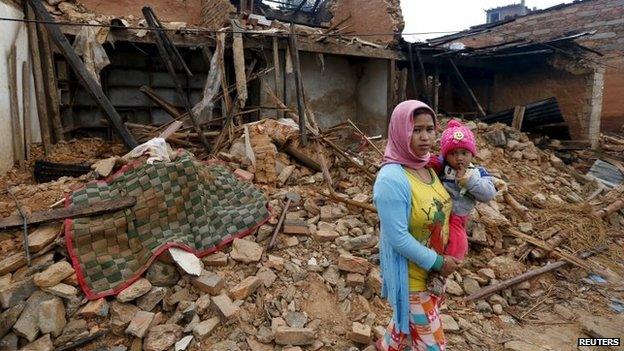
Some villages were devastated by the quake
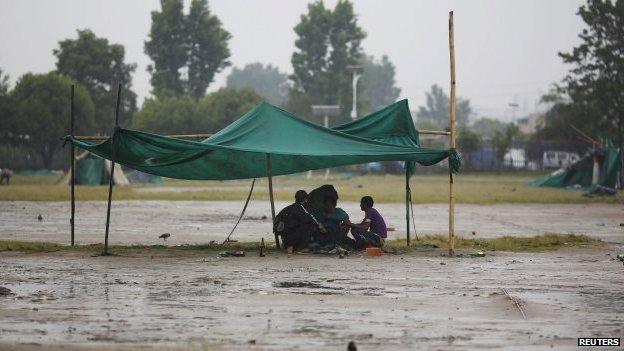
There have been urgent appeals for food, water - and shelter
"We will die if there is no help from the government or other organisations," Dhan Bahadur Shresta, a resident of Deupur Sipaghat Kavre village, told our correspondent.
"We will starve to death and could get diseases like cholera and dysentery and there could be an epidemic."
Some helicopter crews who have managed to land in isolated communities have been faced with desperate villagers pleading to be airlifted to safety.
In the village of Sangachowk, angry villagers blocked the main road with tyres and stopped trucks of rice and other aid headed for other areas, Reuters news agency reported.
The villagers also reportedly blocked a convoy of army trucks loaded with relief supplies, leading to a tense standoff with armed soldiers.

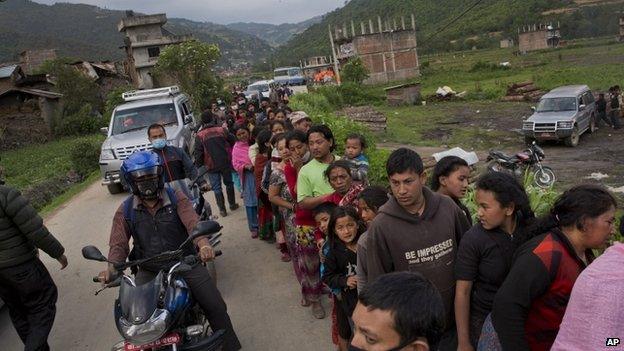
There are long queues for food and water around the capital, Kathmandu

"Although I am heartened and encouraged by the progress of the response to date, efforts need to be maintained and stepped up to ensure vital assistance reaches all the affected, especially those in the remote areas," said the UN's resident co-ordinator for Nepal, Jamie McGoldrick.
There were more angry scenes in Dolakha, east of Kathmandu, when residents smashed the windows of a local administrative building, Chief District Officer Prem Lal Lamichhane said.
"Over 200,000 people are homeless. We've been told that materials are on their way, but we haven't received them yet," he added.
Despite extensive damage, experts say the number of casualties in many villages was lower than feared because people were working outdoors at the time the quake struck.
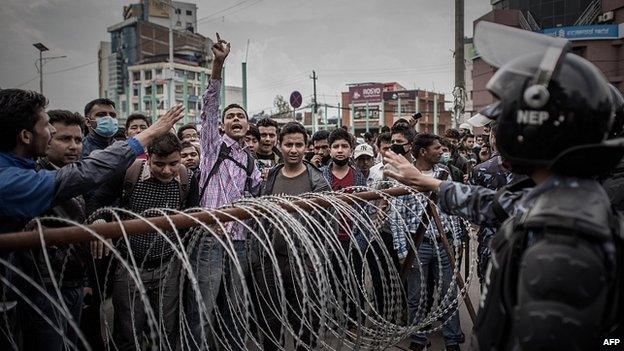
Riot police faced an angry crowd in the capital, Kathmandu
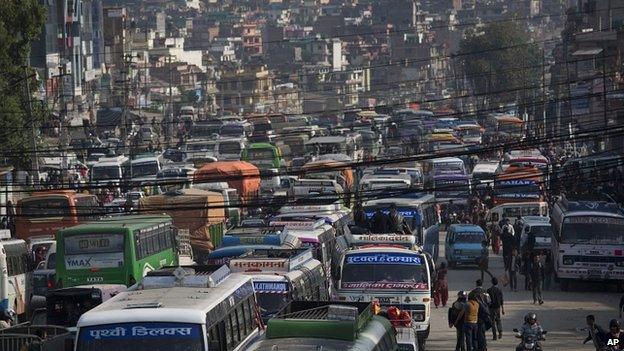
Buses to take people from Kathmandu to their homes in rural areas are crammed to capacity
In Kathmandu, riot police clashed on Wednesday with protesters angry at a lack of transport out of the city and delays in distributing aid. Thousands were waiting for buses to take them to rural areas.
"We've been left starving in the cold and the best this government can give us is this queue," said one resident, Rajana, as she queued for a bus to her home village.
Witnesses said a truck carrying drinking water was forced off the road and protesters climbed on top of it, throwing the bottles into the crowd.
Columns of riot police stood behind rolls of razor wire as protesters surged into the street.
However, there have been some signs that parts of the capital are returning to normal.
Some people have decided to return to their homes, having spent several nights in the open. Cash machines have been refilled and some shops and street vendors have once again started trading.
